-
Dow fined $2.5 million for violations at Michigan chem plant
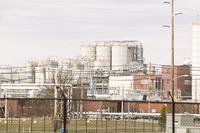
Due to environmental and safety violations at its chemical plant in Midland, Michigan, Dow Chemical will have to pay $2.5 million in fines; federal inspectors found that the chemical plant violated air, water, and waste regulations between 2005 and 2007
-
-
Senate committee passes chemical security bill
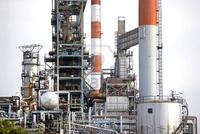
This week, the Senate Committee on Homeland Security and Governmental Affairs voted 8-2 for Senator Susan Collins’s bill (S. 473) to renew the Chemical Facility Anti-Terrorism Standards (CFATS), which is designed to regulate the chemical industry to ensure that they are keeping their facilities safe from terrorist attack; a similar bill has already been approved by a House committee; so far DHS has reviewed 39,000 chemical facilities in the United States and has determined that more than 4,755 are high risk and need to develop detailed security plans
-
-
Sharp divisions over chemical plant security measure
Those who opposed the original Chemical Facility Anti-Terrorism Standards (CFATS) continue to oppose it — and for the very same reasons: they argue it does not go far enough to assure the security of chemical plants in the United States; they point out the versions of the bill approved by House and Senate committees prevent DHS from requiring specific security measures; fail to require safer and more secure chemical processes; exempts thousands of potentially high risk chemical and port facilities, including approximately 2,400 water treatment facilities and 400-600 port facilities, including 125 of 150 U.S. refineries; and prevents plant employees from participating in assessing vulnerabilities and developing security plans
-
-
Fate of chemical security bill uncertain
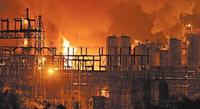
Late last month the House Energy and Commerce Committee approved legislation to extend federal regulations designed to keep chemical plants safe from terrorist attacks, but the bill’s ultimate passage is far from guaranteed; the bill that was recently passed is one of two competing House proposal — the proposals each envisions a different congressional panel monitoring chemical plant safety — and it is unclear which will make it to the floor for debate; in addition, many Democrats and some northeastern Republicans want the extension of the bill to be tied to toughening its language; further to examine what DHS is doing to secure the U.S. chemical facilities from terrorist attack, ASIS is hosting a panel on the Chemical Facility Anti-Terrorism Standards (CFATS) at ASIS annual conference in Orlando, Florida
-
-
Intrusion detection company joins chemical society
The growing attention to chemical plants safety leads perimeter security companies to show even more interest in that sector; Senstar, a manufacturer of perimeter intrusion detection technology, joins the Society of Chemical Manufacturers and Affiliates
-
-
House panel extends chemical plant safety act
In 2006, Congress first authorized DHS to regulate security at high-risk chemical facilities. In response, DHS developed the Chemical Facility Anti-Terrorism Standards (CFATS); to date, DHS has reviewed information submitted by more than 39,000 chemical facilities and determined that 4,744 are high-risk and, therefore, covered under CFATS; yesterday, a House panel voted for a 7-year extension of CFATS
-
-
Biosensor improves pathogen detection in food, water
A nanotechnology-based biosensor being developed by Kansas State University researchers may allow early detection of both cancer cells and pathogens, leading to increased food safety and reduced health risks
-
-
Industry wants current safety law extended rather than see it toughened
Before the House Homeland Security committee, Timothy J. Scott, the chief security officer of Dow Chemical Co., urged Congress permanently to reauthorize the Chemical Facility Anti-Terrorism Standards (CFATS) bill; under CFATS chemical facilities are required to address a range of critical security concerns including protecting facilities against attacks and preventing the theft of dangerous chemicals; currently, more than 35,000 facilities that use or store chemicals are required to meet CFATS regulations; DHS has worked with facility owners to mitigate risks with custom developed security plans at more than 2,000 “high risk” sites
-
-
DOE awards $30 million to bolster smart grid cybersecurity
The Department of Energy awards $30 million for ten projects that will address cybersecurity issues facing the U.S. electric grid; these projects represent a significant investment in addressing cybersecurity issues in the nation’s electric infrastructure
-
-
Railroads do not let HAZMAT teams know what is on train
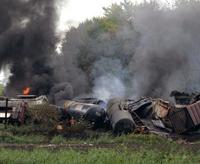
Lethal chemicals roll through the backyards of cities and towns without the knowledge of these towns; residents; railroads do not share information about the schedule and contents of HAZMAT cargo with these towns’ emergency services, so the services cannot prepare for catastrophe; if chlorine or ammonia were to escape from a punctured tanker — in an accident or derailment — it would form a toxic cloud; a compromised 90-ton rail car of chlorine could create a plume fifteen miles long by five miles wide; the U.S. railroad industry transported some 75,000 tank cars of toxic inhalants nationwide in 2009
-
-
Chemical industry spends millions shaping chemical facilities security legislation
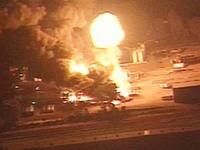
Fourteen parent companies own chemical plants which endanger a large number of people in the United States in the event of an accident or attack on one of their chemical facilities; these 14 parent companies own 163 facilities in 37 different states and Puerto Rico; the facilities owned by The Clorox Company, Kuehne Chemical, and JCI Jones Chemical each put more than 12 million people at risk; these fourteen companies and their affiliated trade associations spent $69,286,198 lobbying the committees with jurisdiction over chemical security legislation in 2008 and 2009; the political action committees (PACs) of these fourteen companies and the PACs of their affiliated trade associations gave $2,187,868 in the 2008 election cycle and the 2010 cycle to date directly to the campaigns of members of the committees of jurisdiction over chemical security legislation
-
-
Chemical industry welcomes extension of current chemical facilities security measure
The U.S. chemical industry breathes a sigh of relief: a senate panel votes unanimously to extend current chemical facilities security law to 4 October 2013; the industry worried about modifications to the Chemical Facility Anti-Terrorism Act of 2009 (CFATS) which would make the measure more stringent — for example, by requiring the chemical plants replace the more toxic and volatile chemicals they use with inherently safer technologies, or IST
-
-
3,000 chemical-filled barrels washed into major northeast China river
Severe floods in China’s Jilin Province carried about 3,000 barrels containing toxic chemicals into the Songhuajiang River in Jilin City; in addition, 4,000 empty barrels containing chemical residues were also washed into the river — a major source of drinking water and fishing; each chemical-filled barrel contains about 170 kilograms of chemicals
-
-
Senate panels to discuss high-risk chemical facilities
This is an important week in chemical facilities security legislation, as two Senate panels are set to hold hearings on how the Environmental Protection Agency (EPA) and DHS can most effectively monitor the security measures taken by U.S. chemical facilities:
-
-
U.S. chemical industry comes out swinging against new Senate plant security bill
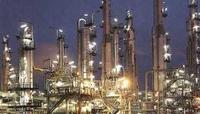
Senator Frank Lautenberg (D-New Jersey) introduced a 107-page chemical plant safety bill which goes further than a similar bill — HR-2868 — approved by the House last November; Lautenberg’s bill requires the highest-risk facilities replace the most toxic and volatile chemicals they use with inherently safer technology (IST); it also set a provision, known as private right of action (PRA), which would allow citizens to file suit in federal court against DHS to force enforcement against a specific facility, and would allow private citizen petitions to DHS to demand federal investigation of suspected security shortcomings at particular sites
-
- All
- Regional
- Water
- Biometrics
- Borders/Immig
- Business
- Cybersecurity
- Detection
- Disasters
- Government
- Infrastructure
- International
- Public health
- Public Safety
- Communication interoperabillity
- Emergency services
- Emergency medical services
- Fire
- First response
- IEDs
- Law Enforcement
- Law Enforcement Technology
- Military technology
- Nonlethal weapons
- Nuclear weapons
- Personal protection equipment
- Police
- Notification /alert systems
- Situational awareness
- Weapons systems
- Sci-Tech
- Sector Reports
- Surveillance
- Transportation
Advertising & Marketing: advertise@newswirepubs.com
Editorial: editor@newswirepubs.com
General: info@newswirepubs.com
2010-2011 © News Wire Publications, LLC News Wire Publications, LLC
220 Old Country Road | Suite 200 | Mineola | New York | 11501
Permissions and Policies
Editorial: editor@newswirepubs.com
General: info@newswirepubs.com
2010-2011 © News Wire Publications, LLC News Wire Publications, LLC
220 Old Country Road | Suite 200 | Mineola | New York | 11501
Permissions and Policies
